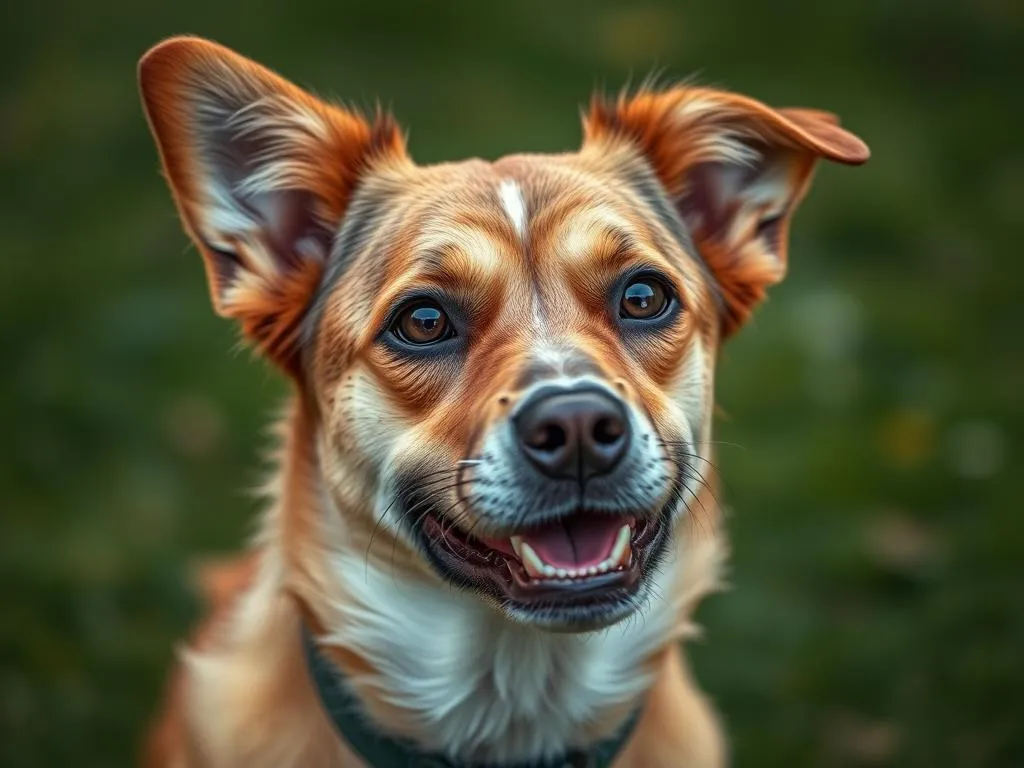
Introduction
Understanding dog personalities is essential for building a harmonious relationship between you and your furry companion. Just like humans, dogs possess their unique traits and temperaments, which significantly influence their behavior, training, and overall compatibility with their owners. Recognizing these personalities can guide you in choosing the right dog for your lifestyle, ensuring a fulfilling and joyful companionship.
In this article, we’ll explore the various types of dog personalities, how they can affect your relationship with your pet, and the importance of aligning a dog’s personality with your lifestyle. We’ll delve into affectionate, independent, energetic, laid-back, protective, and playful dogs, providing insights into their characteristics and care needs.
Understanding Dog Personalities
Definition of Dog Personality
Dog personality encompasses a range of traits that dictate how a dog behaves in various situations. These traits can include social tendencies, energy levels, training responsiveness, and emotional needs. Factors influencing dog personality include:
- Genetics: Certain breeds are predisposed to exhibit specific personality traits.
- Environment: The surroundings in which a dog is raised can significantly influence its behaviors.
- Socialization: Early interactions with people and other animals can shape a dog’s temperament.
Importance of Recognizing Different Personalities
Recognizing the different dog personalities can enhance the owner-pet relationship. Understanding your dog’s unique traits allows you to tailor your training methods and expectations, ultimately leading to a more successful and enjoyable partnership. For example, an affectionate dog may thrive on constant human interaction, while an independent dog may require more space and autonomy.
The Main Types of Dog Personalities
The Affectionate Dog
Affectionate dogs are known for their loving and loyal demeanor. They thrive on human interaction and often seek out attention and cuddles. Characteristics of affectionate dogs include:
- Enjoying close physical contact
- Being eager to please their owners
- Displaying excitement when their owners return home
Breeds that commonly exhibit this personality include Golden Retrievers, Labrador Retrievers, and Cavalier King Charles Spaniels.
Ideal environments for affectionate dogs include homes where they can receive ample attention and affection, making them perfect companions for families and individuals who enjoy a close bond with their pets.
The Independent Dog
Independent dogs are characterized by their self-sufficient nature and often exhibit traits such as:
- Enjoying solitude
- Being less demanding of attention
- Displaying a strong sense of curiosity
Breeds known for their independence include Basenjis, Shiba Inus, and Afghan Hounds.
Tips for caring for independent dogs include providing them with mental stimulation and opportunities for exploration while respecting their need for space. Training methods may require more patience, as these dogs may not always seek to please their owners in the same way as more affectionate breeds.
The Energetic Dog
Energetic dogs are known for their high energy levels and playful nature. They require regular exercise and mental stimulation to stay happy and healthy. Characteristics of energetic dogs include:
- Being highly playful and enthusiastic
- Needing regular physical activity
- Enjoying challenging activities, such as agility or fetch
Breeds that typically fall into this category include Border Collies, Australian Shepherds, and Jack Russell Terriers.
Recommended activities for energetic dogs involve daily walks, interactive play sessions, and engaging training exercises to keep their minds and bodies active.
The Laid-Back Dog
Laid-back dogs are the epitome of calm and easygoing temperaments. They are often described as relaxed and friendly. Traits of laid-back dogs include:
- Being content with a quiet environment
- Enjoying leisurely walks rather than intense play
- Displaying a generally friendly demeanor towards people and other animals
Breeds that are often easygoing include Basset Hounds, Bulldogs, and Shih Tzus.
These dogs are well-suited for families and individuals who prefer a calm companion and can adapt well to various living situations, including apartments.
The Protective Dog
Protective dogs are instinctively inclined to guard their families and properties. They often display traits such as:
- Being alert and watchful
- Being loyal and devoted to their owners
- Sometimes displaying wariness towards strangers
Breeds known for their guarding instincts include German Shepherds, Rottweilers, and Doberman Pinschers.
Socialization tips for protective dogs include early and consistent exposure to various people, environments, and experiences to ensure they remain well-adjusted and not overly aggressive.
The Playful Dog
Playful dogs are characterized by their love for games and interaction. They often exhibit traits such as:
- Being enthusiastic about playtime
- Enjoying engaging activities with their owners
- Displaying a youthful and fun-loving spirit
Breeds that often exhibit a playful nature include Labrador Retrievers, Beagles, and Cocker Spaniels.
Importance of play in their training and socialization cannot be overstated, as it helps in building strong bonds and encourages positive behaviors.
How to Choose the Right Dog Personality for Your Lifestyle
Assessing Your Lifestyle
Choosing the right dog personality starts with assessing your lifestyle. Consider the following factors:
- Activity Level: How active are you? Do you prefer outdoor activities or more relaxed days at home?
- Home Environment: Do you live in an apartment or a house with a yard? What’s your living situation like?
- Family Dynamics: How many members are in your household? Are there children or other pets?
Matching Dog Personalities with Lifestyles
Matching dog personalities with lifestyles is crucial for a successful companionship. Here are a few scenarios:
- Active Individuals: Energetic dogs like Border Collies or Australian Shepherds are ideal for those who lead a physically active lifestyle.
- Families with Young Children: Affectionate dogs like Golden Retrievers are great for families, as they are gentle and loving.
- Busy Professionals: Independent dogs like Shiba Inus may be better suited for those who spend long hours away from home.
The impact of dog personality on living arrangements is significant; for example, energetic dogs may need larger spaces to roam, while laid-back dogs can thrive in smaller environments.
Importance of Adoption and Rescue Considerations
Understanding personality assessments becomes especially crucial when adopting or rescuing a dog. Many shelters conduct personality evaluations to determine a dog’s temperament, helping potential adopters find a suitable match.
When evaluating a rescue dog’s personality, observe its behavior in various situations and ask shelter staff about its history. This information is invaluable in ensuring the dog’s personality aligns with your lifestyle.
Training and Socializing Dogs Based on Their Personalities
Customizing Training Approaches
Training methods should be customized based on a dog’s personality. Here are some techniques suited for different personalities:
- Affectionate Dogs: Use positive reinforcement and rewards to encourage desired behaviors.
- Independent Dogs: Incorporate longer training sessions with breaks to allow for their self-sufficient nature.
- Energetic Dogs: Utilize high-energy, interactive training methods to keep them engaged.
Regardless of the personality type, positive reinforcement is essential in building trust and developing a strong bond.
Socialization Tips for Different Personalities
Socializing dogs according to their personalities can significantly enhance their behavior. Here are tailored tips:
- Affectionate Dogs: Arrange playdates and frequent interactions with other pets and people to satisfy their social needs.
- Independent Dogs: Allow them to explore new environments at their own pace, fostering confidence and independence.
- Energetic Dogs: Engage them in group classes or agility courses that provide both social interaction and physical activity.
- Laid-Back Dogs: Introduce them to calm environments and gentle interactions to maintain their relaxed demeanor.
- Protective Dogs: Include various socialization experiences from a young age to help them distinguish between safe and unsafe situations.
- Playful Dogs: Regularly participate in interactive play sessions to keep them engaged and socially well-rounded.
Signs of Stress or Mismatch in Personality
Recognizing Signs of Stress in Dogs
Understanding signs of stress in dogs is crucial, especially if you suspect a personality mismatch. Behavioral indicators include:
- Changes in appetite or sleep patterns
- Increased barking or destructive behavior
- Withdrawal or avoidance of social interactions
Addressing stress involves assessing the dog’s environment and making necessary adjustments to reduce anxiety.
How to Correctly Reassess and Adapt
If you feel your dog’s personality does not match your lifestyle, take the following steps:
- Reassess: Evaluate your daily routines and how they impact your dog.
- Adapt: Implement changes in your environment or schedule to better accommodate your dog’s needs.
- Seek Professional Help: If issues persist, consider consulting a professional trainer or behaviorist for guidance.
In some cases, it may be necessary to reconsider dog ownership if there is a significant mismatch, ensuring the best outcome for both you and the dog.
Conclusion
Understanding dog personalities is not just a matter of interest—it’s essential for creating a rewarding relationship with your pet. By considering the unique traits of various personalities, prospective dog owners can make informed decisions that align with their lifestyle.
The joy of having a dog that fits seamlessly into your life is unparalleled. Whether you choose an affectionate companion or a laid-back friend, the bond you create will be a source of mutual love and happiness. Embrace the journey of discovering your dog’s personality, and you will reap the rewards of a fulfilling partnership.
This detailed exploration of dog personalities aims to guide potential dog owners in making educated decisions, ensuring that every dog finds the right home where they can thrive and bring joy for years to come.








